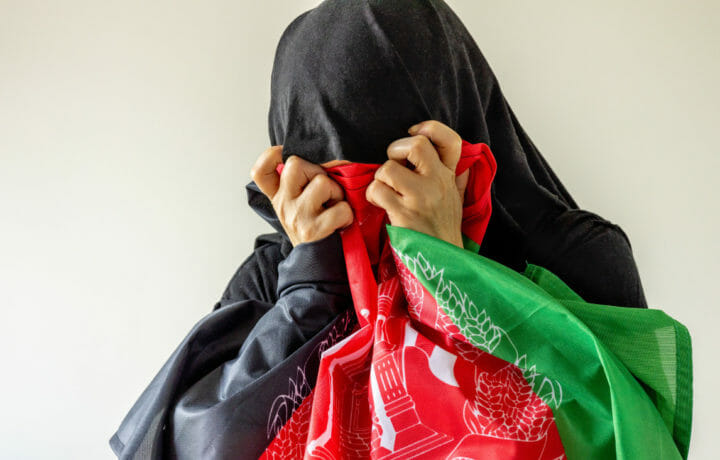The United Nations Assistance Mission in Afghanistan (UNAMA) released a 58-page report on Human rights in Afghanistan covering the period of August 15, 2021 – June 15, 2022. The UN report assessed the human rights situation under the illegal Taliban-Haqqani terror regime with a focus on “protection of civilians, extrajudicial killings, torture and ill-treatment, arbitrary arrests and detentions, the rights of women and girls in Afghanistan, fundamental freedoms and the situation in places of detention.”
Without a large Afghan military and police to target in terrorist attacks, or a continued focus on nationwide mass murder of civilians by the Taliban-Haqqani regime, the overall violence in Afghanistan is believed to have decreased. Despite the lack of a large terrorist insurgency campaign over 2,000 civilians were murdered or injured in the last 10 months. This number is likely very low due to the inability of UN persons to travel to areas where the Taliban-Haqqani are engaged in combat and illegal killings of opposition forces and their families. The number is also low due to a fear of reporting by victims and their families.
The lack of reporting in areas where Afghans are fighting in opposition to the terror regime also led the UNAMA team to state that the majority of the casualties were caused by the IS-K branch of ISIS. This is also skewed by the Taliban-Haqqani technique of claiming IS-K are the perpetrators of any terrorist attack that receives a large negative response in the West.
By the Numbers
“160 extrajudicial killings, 178 arbitrary arrests and detentions, 23 instances of incommunicado detention and 56 instances of torture and ill-treatment of former ANDSF and government officials carried out by the de facto authorities” (AKA Taliban-Haqqani regime).
“59 extrajudicial killings, 22 arbitrary arrests and detentions and 7 incidents of torture and ill-treatment” by the Taliban-Haqqani regime were aimed at people they claimed were IS-K.
“18 extrajudicial killings, 54 instances of torture and ill-treatment and 113 instances of arbitrary arrest and detention and 23 cases of incommunicado detention” for Afghans by the Taliban-Haqqani regime based on accusations of being in the National Resistance Front.
“217 instances of cruel, inhuman and degrading punishments and 118 instances of excessive use of force” have been conducted by the Taliban-Haqqani regime.
Media and Civil Society under attack
Just this morning, a long-time journalist covering Afghanistan was able to escape the hands of the Taliban-Haqqani regime. She was held by their intelligence thugs for an article she wrote and was forced to tweet against herself to retract the published report.
July 19: “l apologize for 3 or 4 reports written by me accusing the present authorities of forcefully marrying teenage girls and using teenage girls as sexual slaves by Taliban commanders. This was a premeditated attempt at character assassination and an affront to Afghan culture.”
“These stories were written without any solid proof or basis, and without any effort to verify instances through on-site investigation or face-to-face meetings with alleged victims.”
Since her escape out of the country Lynne O’Donnell has tweeted:
20 July 20: “Tweet an apology or go to jail, said #Taliban intelligence. Whatever it takes: They dictated. I tweeted. They didn’t like it. Deleted, edited, re-tweeted. Made video of me saying I wasn’t coerced. Re-did that too. #TwoTakesTaliban (I’m out now) #Afghanistan #journalism”
This type of hostage taking and rewriting of facts is in keeping with Taliban-Haqqani behavior. The UNAMA report noted “Human rights violations affecting 173 journalists and media workers, 163 of which were attributed” to the Taliban-Haqqani regime. Of those events 122 were instances of “arbitrary arrest and detention, 58 instances of ill-treatment, 33 instances of threats and intimidation and 12 instances of incommunicado detention.”
Those brave Afghans in civil society who continue to protest the terror regime were also targets, with 64 human rights defenders being targeted by the Taliban-Haqqani terrorists “Among these were 47 arbitrary arrests, 17 cases of incommunicado detention, 10 cases of ill-treatment and 17 cases of threats and intimidation.”
Trust in UN is Fleeting in Afghanistan
The UNAMA team does not refer to the Taliban-Haqqani terrorist network by its actual name in the report. They do use the externally unrecognized and internally illegitimate term “Islamic Emirate of Afghanistan” in numerous places. The UMAMA team also allowed the Taliban-Haqqani terror network to read the report and add their excuses for not protecting human rights, and dodge the accusations of conducting human rights violations. This will only add to the distrust Afghans have in the UN and the UNAMA team.
Markus Potzel, Acting Secretary-General’s Special Representative for Afghanistan noted at the report release that “the people of Afghanistan, in particular women and girls, are deprived of the full enjoyment of their human rights.” It is unclear if any actions will be taken by the UN, EU, NATO, or any nation to stop this human rights crisis.
The report can be read here in multiple languages: https://unama.unmissions.org/human-rights-monitoring-and-reporting




